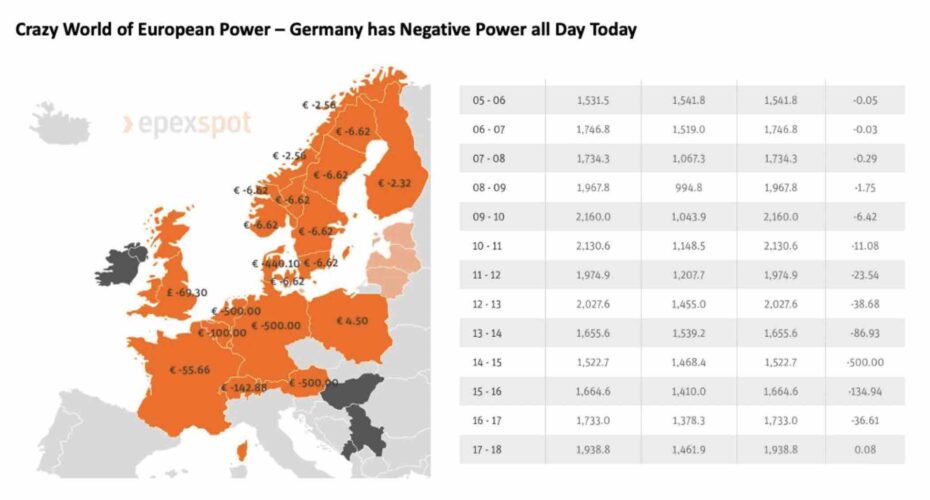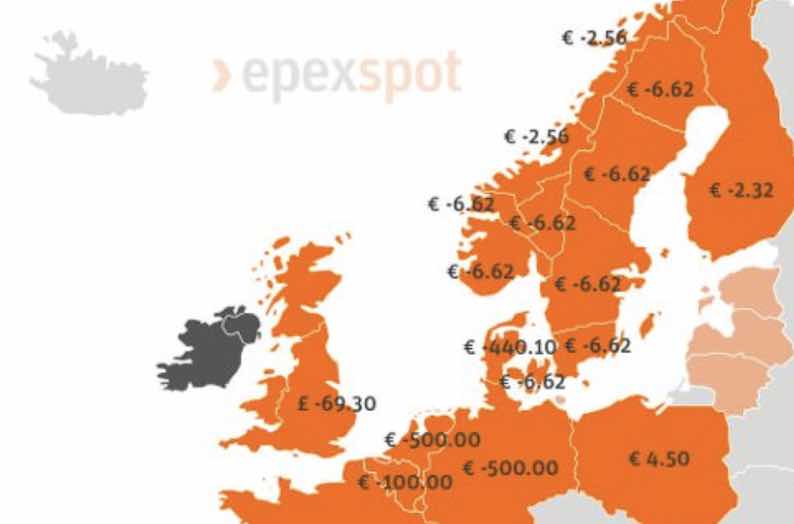Wholesale electricity prices went into negative territory across much of western Europe over the weekend, and for the entire day in Germany, according to energy analysts.
Energy analyst and commentator Gerard Reid noted the negative pricing and posted a screen shot on LinkedIn of prices quoted on the epexspot exchange.
“Free electricity across all of Europe today … any takers?” Reid wrote on his LinkedIn post, before adding: “PS: It will be the same every weekend in summer!”
Australian electricity markets are already used to long periods of negative prices, particularly during the day when rooftop solar sucks up much of the domestic demand, leaving large scale wind, solar and the remaining thermal generators to battle to be dispatched.
Solutions include more storage and demand management (switching more loads to times when renewables are producing their highest.

In a later post on LinkedIn, Charlotte Johnson, the global head of markets at KrakenFlex, noted that the weekend was a “record breaking moment” for widespread negative prices, with day ahead prices for delivery negative for over 70% of the day.
She said this was driven by huge amounts of wind and solar generation, but it also means that many renewable generators did not get paid because prices were negative for so long.
“The majority of the GB renewable fleet is still on some form of subsidy,” Johnson wrote.
“However, renewable generators on CfD subsidies don’t get paid if prices remain negative throughout a consecutive six-hour period (today they are negative for 17 hours in a row) and so the difference payments will be set to zero for the entirety of that period.”
The noted that the 6-hour rule has been removed from some tenders completely, meaning that any negative pricing results in a loss of payments.
“With the government targeting 50GW of offshore wind by 2030 and 70GW of solar by 2035 these events are likely to increase in frequency as correlated weather patterns leads to price cannibalisation (particularly when some older subsidies incentivise generation throughout these periods).
“Negative pricing should really be an incentive for renewable generators to employ control systems that are able to curtail generation in real-time and a clear market signal for the importance of flexible technologies -battery storage and electric vehicles)🔋, 🚗.”:










